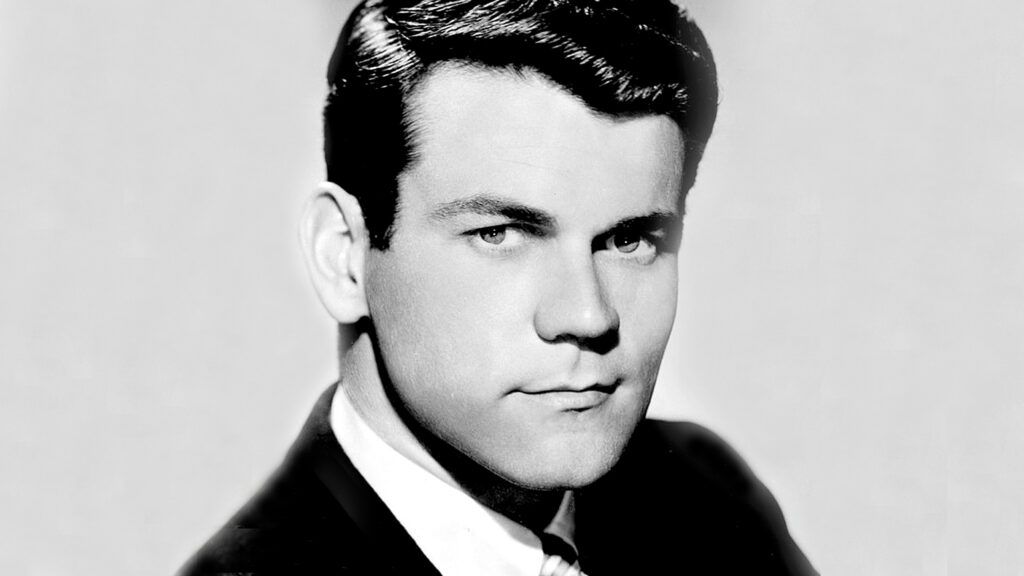Six years ago I discovered that the test of my convictions was how much I would be willing to sacrifice for them—even if it meant jail.
While registering for the draft in 1952, I said that I would serve in any capacity that was not part of the military.
When called up, I restated my convictions. But I had a great deal of difficulty in establishing my points because I was so healthy, and I was an actor. They fingerprinted me, photographed me, and booked me on a charge of violating the draft act. I faced a $10,000 fine and five years in prison.
READ MORE: SHIRLEY LONES ON FATHERLY LOVE
Though I had no money, a lawyer agreed to represent me for a nominal fee because he believed me. During the next 30 days, until my trial came up, I was thoroughly investigated by the FBI, and faced a grueling cross-examination by a suspicious and hostile prosecutor.
During that day of interrogation the prosecutor tried hard to talk me into avoiding all the trouble by accepting induction; I told him I couldn’t because of my beliefs.
“What are your beliefs?” he demanded.
“One way of putting them,” I answered, “is that the teachings of Christ, and my own human experience, convince me that nothing is gained by violence and killing except more violence and killing.”
“Don’t you think you could be wrong?” he asked.
“It’s true I could be wrong,” I said, “but it’s absolutely what I believe to be right. And if I didn’t have the faith and the courage to stand by what I believe to be right, then I’d betray the heart of my own character and my own human soul. And I’d betray all those in my country who have taken a stand on conscience and have suffered, and even died for it, but persevered.”
He said nothing, and left.
READ MORE: RICARDO MONTALBAN ON THE POWER OF PRAYER
When my case came up, the prosecutor refused to prosecute. He told the court he was convinced I was telling the truth, and there would be no point in sending me to jail.
I first sensed an abhorrence for violence when I was a kid in high school, a feeling that grew steadily stronger in the years after. Somehow I learned early in life that there are simpler, more satisfying ways of settling conflicts than resorting to physical strife.
For instance, my father is a Catholic and my mother a Congregationalist; both are active in their own churches. Yet each of my parents has held strongly to his or her religious belief in a spirit of real understanding, one for the other, with that deep love which is the beginning of all understanding. This was a lesson for me to learn and profit from in my own home.
After my experience with the draft board, I found there were ways I could serve my country other than by fighting. I volunteered with the Church of the Brethren for overseas duty. In their training sessions, the Brethren impressed me tremendously as people who freely give a portion of their lives to make themselves useful to others.
And when Bob Richards, Olympic pole vaulting champion and a minister of this church, talked during our training periods, I made a commitment to try to lead my life that way. Later I, myself, joined the Church of the Brethren.
I was assigned as a laborer in German refugee camps for one year, and then I spent 18 months in Italy, first among the homeless and often lawless street orphans, and finally in the refugee camps around Naples.
These refugees were of all faiths: Protestant, Catholic, Jewish, Mohammedan, and even Buddhist. All of them had run from tyranny of Nazism or Communism and ended up behind barbed wire. They had been in the camps from eight to ten years and, not allowed to hold jobs outside, had led idle, almost vegetable existences.
My main tasks were to teach them English, and to organize other activities. But I soon realized that primarily I had to give them a reason for getting out of bed in the morning. Refugee camp life had destroyed them as normal human beings, for spiritually, they were dead.
It took six months before I even could start to dispel their apathy. The first advance came when trips were organized outside the barbed wire. Then, when I learned that they could make objects with their hands, beautiful things of wood, leather, and metal, this was encouraged.
But their handicraft had to be appreciated by others, too. Where could we get these items sold? A plan was worked out with the Navy wives who put on a bazaar to sell the wares, and the refugees entertained at the bazaar too. It was amazing. The camps came alive.
READ MORE: PATTY DUKE ON TRUSTING IN GOD
At Christmas I suggested we put on a show, just the story of Jesus in English, with a few carols. The permanent staff had a few doubts about the idea, but let me go ahead. About 1,200 of the refugees came streaming in, some of them in protest. I held up my hand and shouted above the din—in Italian. They quieted down, I think, just to see if I could speak Italian.
My little speech concerned respect for the story of Jesus regardless of their own different faiths. Maybe they listened because they knew I could have gone home before Christmas, but had volunteered to stay among them six months more. Afterwards, however, they listened intently to the little play.
Oh, there were victories like this, but the whole thing was a humbling experience because I felt so terribly inadequate. Maybe the greatest thing that happened to me was that I did feel so useless. Sometimes I thought I reached some of them. Other times I doubted it.
One person who made me doubt that I had reached any of them was a brilliant fellow, of about my age. He had good looks and an Olympian physique, but one of his legs was badly crippled from polio. He was bitter and belligerent.
After 18 months in the camps it was clear to me that the only thing that could help the refugees was a sensible plan for immigration. Just before I left, I took a census so I could tell their stories and help them in some way when I got back home.
While interviewing this young, crippled fellow, I asked him the usual questions: how he came to the camp, how he existed there, what he thought of his future. That last question put still greater bitterness in his bitter smile. He started to leave, then turned and said:
READ MORE: DEAN JONES ON GOD’S PEACE
“I don’t understand you. You are an American. You come from the land of big cars and refrigerators. But you walk around camp in one shabby suit of clothes, eat what we eat, and have nothing more than we have, though you probably could have much more. Yet you seem to be happier than the American officials and tourists who have all the things we do not have.
“I am afraid for you. I am afraid that the things I’ve lived through, and the things you have taken it upon yourself to live through, might destroy you and your happiness as it destroyed me. Why did you ask for this? Why did you come here?”
I knew at this moment, that for my own soul at least, everything I had tried to do in the camps hinged on my answer. Yet I could only answer what I felt and knew:
“I am an American, yes, but there is more in America than big cars and refrigerators. There is a faith, too. There are Americans who remember that they are children of God. And maybe in different ways, you and I are trying to be among those children.
“I came here because I am a Christian and believe in the power of non-violence. And as a Christian I should serve wherever there is despair and suffering. As a Christian, I also believe despair and suffering can be ended without violence through the power of Christ’s love for us. That has kept me in these camps although I have often wanted to run from here.”
The bitter smile left his face. He became very intense. “The cynical part of me knows you are naive,” he said, “and one day you will die the kind of death that destroys all innocence. Yet, there is still a spark of the idealist in me, and with that spark I pray that your hopes and dreams will escape that kind of death.” And he walked out.
“And with that spark I pray…”
The words echoed and swelled in my heart. I had reached him, and I knew that what I had tried to do was not without purpose.
There is always heartache in an unpopular stand though you know it is right. But there can be triumph too, when you do not compromise that right.
For more inspiring stories, subscribe to Guideposts magazine.






